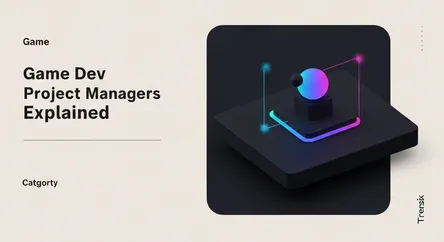Game
Game Dev Project Managers Explained

Discover the crucial role of a Project Manager in game development. Learn how they guide teams from concept to launch to deliver hit games on time.
What is it?
A Project Manager (often called a Producer in the game industry) is the organizational backbone of a game development team. They are responsible for planning, executing, and finalizing projects according to strict deadlines and within budget. This involves managing schedules, allocating resources, facilitating communication between different departments like art, programming, and design, and identifying and mitigating risks. They ensure the entire team is aligned with the game's vision and that milestones are met, effectively steering the complex process of creating a game from initial concept to final release.
Why is it trending?
As video games have grown into massive, multi-million dollar productions with teams of hundreds, the need for skilled project management has skyrocketed. The rise of live service games, which require continuous updates and content delivery, makes the PM's role essential for long-term success. Furthermore, the industry's adoption of Agile and Scrum methodologies places a heavy emphasis on the structured, iterative planning and oversight that project managers provide, making them more critical than ever for navigating the complexities of modern game development.
How does it affect people?
For game developers, a great Project Manager is a vital ally who prevents scope creep, minimizes 'crunch' (excessive overtime), and removes roadblocks, allowing creatives to focus on their work. For gamers, the impact is direct: effective project management leads to better, more polished games that are released on schedule. It's the unseen force that helps prevent buggy launches, delays, and 'development hell,' ultimately resulting in a higher quality experience for the player.